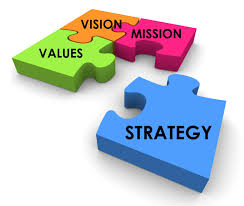Mastering Essential Skills for Success: A Path to Personal and Professional Growth
The Importance of Developing Skills
Skills are the foundation of personal and professional growth. They are the tools that enable individuals to perform tasks effectively, solve problems, and achieve success in various aspects of life.
Developing skills is a continuous process that requires dedication, practice, and a willingness to learn. Whether it’s acquiring technical skills related to a specific profession or soft skills such as communication and leadership, honing your abilities can open up new opportunities and enhance your overall quality of life.
Benefits of Developing Skills:
- Career Advancement: Enhancing your skills can make you more valuable in the workplace, leading to promotions and career growth.
- Increased Confidence: Mastering new skills boosts self-confidence and empowers you to take on challenges with conviction.
- Adaptability: Developing a diverse set of skills equips you to adapt to changing circumstances and thrive in dynamic environments.
- Personal Fulfilment: Learning new skills can be fulfilling and enriching, providing a sense of accomplishment and personal satisfaction.
- Improved Problem-Solving: Strong skill sets enable you to approach problems creatively and find effective solutions.
In today’s fast-paced world, the demand for skilled individuals is higher than ever. Continuous learning and skill development are essential for staying competitive in the job market and seizing opportunities for growth.
Whether through formal education, training programmes, online courses, or self-study, investing in skill development is an investment in your future success. Embrace lifelong learning, challenge yourself to acquire new skills, and unlock your full potential.
Essential Skills: Understanding, Identifying, and Developing Key Competencies for Career Success
- What are transferable skills and why are they important?
- How can I identify my key skills?
- What are the most in-demand skills in today’s job market?
- How can I improve my communication skills?
- What is the difference between hard skills and soft skills?
- How do I develop leadership skills?
- Are there online resources available for learning new skills?
What are transferable skills and why are they important?
Transferable skills are abilities and qualities that can be applied across different roles, industries, and situations. These skills are not tied to a specific job or task but can be transferred and utilised in various contexts. Examples of transferable skills include communication, problem-solving, time management, and teamwork. They are important because they enable individuals to adapt to new challenges, transition between roles or industries, and thrive in diverse environments. Transferable skills showcase a person’s versatility and capability to excel in different settings, making them valuable assets in today’s ever-changing job market. By possessing transferable skills, individuals can enhance their employability, increase their professional opportunities, and demonstrate their ability to succeed in a wide range of roles.
How can I identify my key skills?
Identifying your key skills is a crucial step in understanding your strengths and capabilities. One effective way to pinpoint your key skills is to reflect on your past experiences and achievements. Consider the tasks you excel at, the activities you enjoy, and the feedback you have received from others. Additionally, seeking input from colleagues, mentors, or friends can provide valuable insights into areas where you shine. Assessing your performance in various roles and situations can help you identify patterns of success and determine which skills are fundamental to your professional growth. Remember that self-awareness and reflection are key components in recognising and harnessing your key skills effectively.
What are the most in-demand skills in today’s job market?
In today’s job market, certain skills are highly sought after by employers across various industries. Some of the most in-demand skills include digital literacy, as technology continues to shape the way we work; data analysis and interpretation, to make informed decisions based on complex data sets; communication skills, both verbal and written, to effectively convey ideas and collaborate with others; adaptability and flexibility, to thrive in a rapidly changing environment; and problem-solving abilities, to address challenges creatively and find innovative solutions. Acquiring and honing these in-demand skills can significantly enhance one’s competitiveness in the current job market and open up opportunities for career advancement.
How can I improve my communication skills?
Improving communication skills is a common goal for many individuals seeking personal and professional growth. To enhance your communication abilities, consider practising active listening, which involves fully engaging with the speaker and responding thoughtfully. Additionally, honing your verbal and non-verbal communication techniques, such as maintaining eye contact and using clear and concise language, can significantly improve your effectiveness in conveying messages. Seeking feedback from others and participating in communication workshops or courses are also valuable ways to refine your skills. Remember, consistent practice and a willingness to learn are key to becoming a proficient communicator.
What is the difference between hard skills and soft skills?
The distinction between hard skills and soft skills lies in their nature and application. Hard skills refer to specific, teachable abilities that are typically quantifiable and technical in nature, such as coding, data analysis, or proficiency in a foreign language. On the other hand, soft skills are interpersonal attributes that are more subjective and relate to how individuals interact with others, manage relationships, communicate effectively, and demonstrate emotional intelligence. While hard skills are crucial for performing specific tasks and roles, soft skills play a vital role in overall professional success by influencing teamwork, leadership capabilities, and adaptability in diverse environments. Both hard and soft skills complement each other to create a well-rounded individual capable of excelling in various aspects of their personal and professional life.
How do I develop leadership skills?
Developing leadership skills is a journey that requires self-awareness, dedication, and a willingness to learn and grow. To enhance your leadership abilities, start by identifying your strengths and areas for improvement. Engage in activities that allow you to practice decision-making, communication, and team management. Seek mentorship from experienced leaders and learn from their insights and experiences. Additionally, consider taking on leadership roles in projects or volunteer opportunities to gain hands-on experience. Continuous reflection, feedback, and a commitment to personal development are key to becoming an effective leader. Remember, leadership is not just about directing others but also about inspiring and empowering them to achieve common goals.
Are there online resources available for learning new skills?
In response to the frequently asked question, “Are there online resources available for learning new skills?”, the answer is a resounding yes. The internet offers a vast array of online resources dedicated to helping individuals acquire new skills and knowledge. From interactive courses on platforms like Coursera, Udemy, and LinkedIn Learning to informative tutorials on YouTube and educational websites, there is no shortage of options for those seeking to expand their skill set. These online resources provide flexibility, accessibility, and a wide range of subjects to choose from, making it easier than ever to embark on a journey of continuous learning and skill development from the comfort of your own home.





